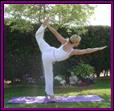You expect to find food in the kitchen, but dangerous chemicals?
If you have children or pets, you know how inquisitive they are, and how easy it would be for them to get into your cupboards.Rather than get a false sense of security from "child proof" gizmos.Instead of traditional cleaners why not just check out your pantry for help.In addition to being safe, they may save you money as well!
All-purpose cleaner, ammonia-based cleaners, bleach, brass or other metal polishes, dishwater detergent, disinfectant, drain cleaner, floor wax or polish, glass cleaner, dishwashing detergent, oven cleaner, and scouring powder. contain dangerous chemicals. The following are a examples of a few common items you probably already have in your pantry, and how they can be used:
1.Baking soda is sodium bicarbonate. It has a number of useful properties. It can neutralize acid, scrub shiny materials without scratching, deodorize, and extinguish grease fires. It can be used as a deodorizer in the refrigerator, on smelly carpets, on upholstery and on vinyl. It can help deodorize drains. It can clean and polish aluminum, chrome, jewelry, plastic, porcelain, silver, stainless steel, and tin. It also softens fabrics and removes certain stains. Baking soda can soften hard water and makes a relaxing bath time soak; it can be used as an underarm deodorant and as a toothpaste, too.
2.Cornstarch, derived from corn, can be used to clean windows, polish furniture, shampoo carpets and rugs, and starch clothes.
3.Vinegar is made from soured applied juice, grain, or wine. It contains about 5 percent acetic acid, which makes it a mild acid. Vinegar can dissolve mineral deposits, grease, remove traces of soap, remove mildew or wax buildup, polish some metals, and deodorize. Vinegar can clean brick or stone, and is an ingredient in some natural carpet cleaning recipes. Use vinegar to clean out the metallic taste in coffeepots and to shine windows without streaking. Vinegar is normally used in a solution with water, but it can be used straight.
4.All-purpose cleaner can be made from a vinegar-and-salt mixture or from 4 tablespoons baking soda dissolved in 1 quart warm water.
These are just a few helpers in the kitchen.You can use safe substitutes all around the house. Do an inventory, and see where you can make substitutions and make sure unsafe materials are in a safe place. If in spite of all your precautions, something does happen keep this number OUT where you can see it:
USA
The American Association of Poison Control Centers manages the 24-hour hotline, which is continuously staffed by pharmacists, physicians, nurses, and poison information specialists who have received dedicated training in the field of toxicology. It has a TTY/TDD number for the hearing impaired. Poison educators across the country also offer poison prevention training and education sessions to community institutions, along with educational materials. The national phone number is 1-800-222-1222, which routes calls to a local facility.
Wednesday, February 7, 2007
Foods as Cleaning Supplies?
Posted by
Lionheart
at
8:58 PM
![]()
Subscribe to:
Post Comments (Atom)











No comments:
Post a Comment